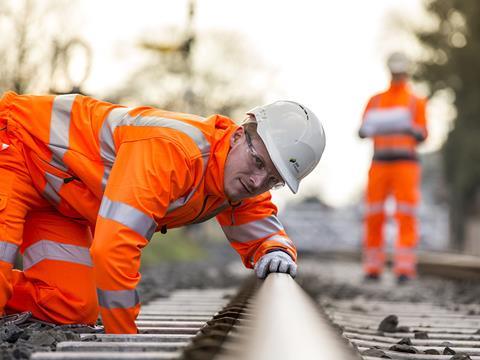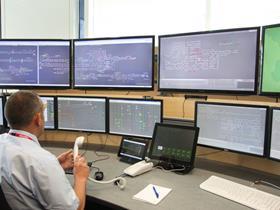
UK: Action needs to be taken now prevent a serious escalation of skills shortages in the rail industry over the next five years, according to the ‘Back on Track’ report published by City & Guilds and the National Skills Academy for Rail.
The report released on November 23 says systemic pipeline issues have created a shortage of trained and talented employees, and industry collaboration is needed to address problems including a short-term approach to skills development, an ageing workforce and reliance on overseas and ‘third-tier’ workers on short fixed-term or zero hours contracts.
The seven key recommendations outlined in the report are to:
- build lifelong learning commitments into project specifications for national rail projects, starting with apprenticeships;
- transform the rail industry into a career destination, especially for young people, including educating the public about what a career in rail ‘really looks like’;
- develop strong career paths to attract and retain talent and maximise productivity;
- make mid-career entry to the industry and skills transfer more frictionless;
- build greater participation at a local/regional level;
- government and relevant partners should consider a perception and awareness raising campaign;
- utilise the green agenda to attract a new generation of people to the industry.

The research found that 28% of workers in the rail industry are aged over 50, and some 15 000 people could be due to retire by 2025. Meanwhile, Brexit could reduce access to overseas workers; from 2016 to 2018 the proportion of EU workers in the rail sector dropped from 17% to 15%, a trend which is predicted to continue.
The overlap between this skills shortfall and new projects means that between 7 000 and 12 000 additional people will be required every year over the next five to 10 years, with peak demand around 2025.
‘Unless government, employers and industries work together to urgently addresses these issues, they risk scuppering this golden opportunity’, Martin Hottass, Managing Director, Technical Training, at City & Guilds Group ‘It’s clear that greater collaboration will be key to increasing awareness of opportunities in the sector, and ensuring that rail projects are committed to creating lifelong learning opportunities.’
The report says lack of upskilling opportunities and reputational problems including concerns about unsociable working hours and regularly travelling far from home mean that the industry continues to struggle to attract candidates, with just 32% of respondents saying they would consider a career in the rail. This is particularly acute amongst women, young adults and people from BAME backgrounds:
The report says 16% of the current rail workforce is female, and 24% of women would consider a career in rail compared to 41% of men. 26% of 18-24-year olds say they would consider rail, compared to 39% of 35-44-year olds, and 27% of BAME people compared to 32% of white people.
The report found that disinterest in rail careers could be fuelled by misperceptions, and a lack of awareness about the wide range of roles and career opportunities. Of those who said that they would not consider working in the rail industry, 42% said they don’t know enough or anything about careers in the sector, whilst 35% said they do not have the skills needed.

Welcoming the report, General Secretary of the TSSA trade union Manuel Cortes urge the government and industry leaders to ‘act now to prevent a skills gap opening’. He said ‘there is a clear need to attract new people to our industry due to skills shortages and that means it is imperative that our rail industry becomes more inclusive. There is an opportunity to take action now through providing training and recruitment opportunities to ensure we have the skilled workforce our railways need and at the same provide quality jobs in a diverse workforce.’
Supporting documents
Click link to download and view these filesCG_Group_Rail Report FINAL
PDF, Size 3.36 mb



